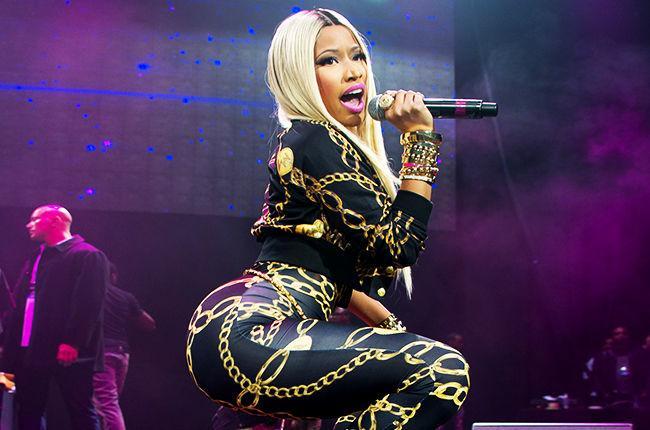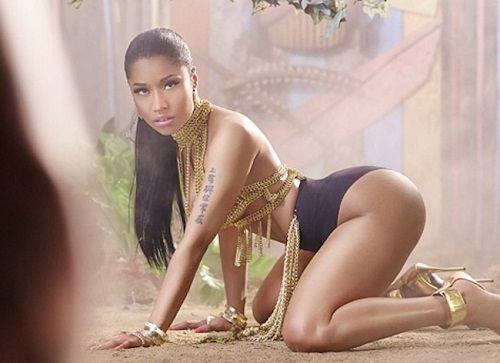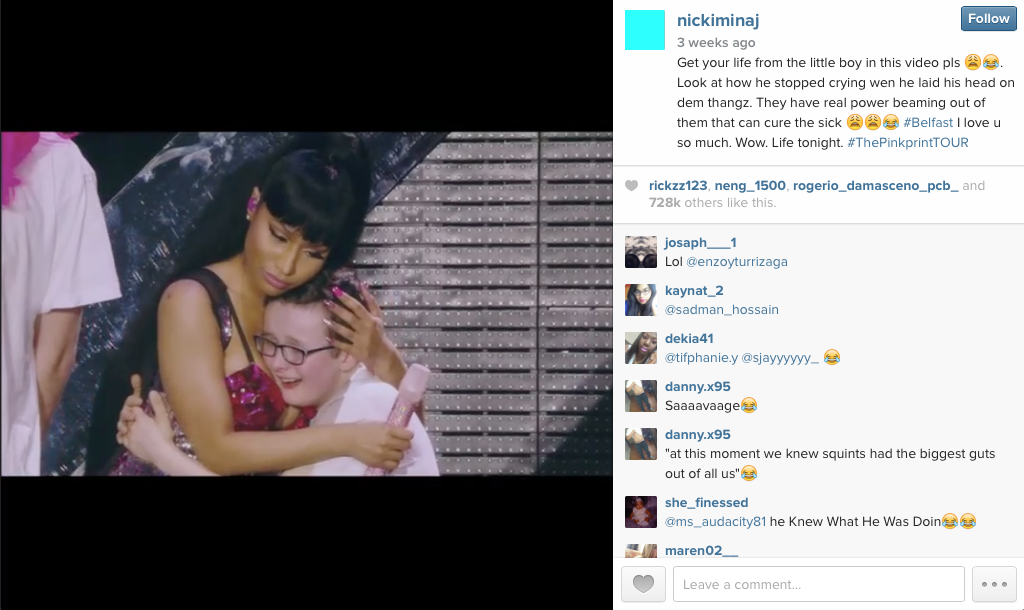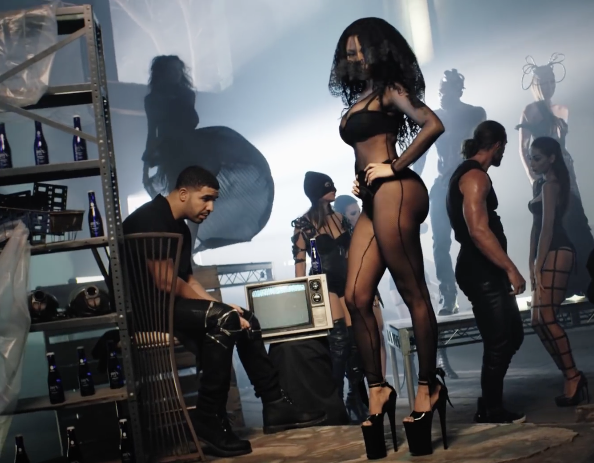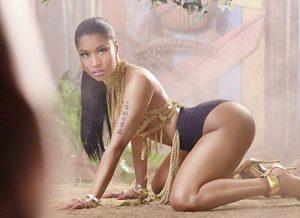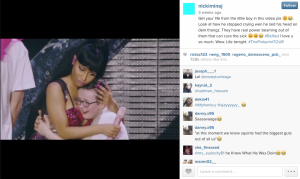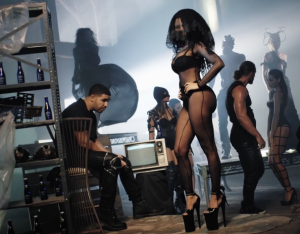For a song with a punch line about duct tape, Nicki Minaj’s platinum single is proving that not “Only” is she redefining the image of women in the music industry, but the entire feminist movement itself. Indeed, a bold, largely baseless claim, but one that this article aims to prove. First, let’s gain some background knowledge for the uninitiated who foolishly clicked on this article.
Written and produced by Minaj and 9 others, “Only”, a single from the album The Pinkprint, was destined to be another pop-hit for the superstar. However, the controversial nature of an animated music video released in October 2014 harkening back to imagery of Nazi Germany infuriated the haters, drawing in attention for all the wrong reasons.
Despite this setback, “Only” has gone on to become a smash-hit. Debuting at No. 1 on the Billboard Hip-Hop/R&B chart, the song still continues to have staying power, remaining on the Spotify Top 50 charts to this day.
While “Only” is already on track to become a classic in music history, its deeply inspiring messages and feminist connotations have to be analyzed and understood. In this writer’s opinion, it’s the silver bullet to the patriarchal system of oppression we’ve been looking for.
In order for us to better understand this truly historic moment for women in music and, for that matter, the arts in general, let us understand the long history of women in the arts and the strides made to reach this stage in present times.
It was the famed sociologist Pierre Bourdieu who developed the notion of the “consecrated” artist and their works. In the whole scheme of the cultural product, the male dominated culture industry (the bourgeoisie) favors males over female artists, belittling their work and denying them the rank of the consecrated.
However, is there evidence that bourgeois legitimacy has been surpassed in this age where popular legitimacy bestowed by the people is as direct as a tweet or as viral as a Facebook post? We need look no further than Minaj’s online social media presence itself. The ability for Minaj to bypass the traditional platforms utilized by the culture industry to directly reach her fans signals a clear shift in how the public perceives gendernormativity.
Minaj’s single “Only” is truly historic in its ability to transcend societal norms from beginning to end. Nicki opens the song by exclaiming “I never [had sex with] Wayne; I never [had sex with] Drake. On my life, man, f*** sake”, a powerful thesis statement. Reaffirming that she did not have to sleep her way to the top, Nicki still maintains her sexual freedom to control her body as she so chooses.
Lil Wayne exclaims that “whoever is [having sex with Nicki] ain’t hitting it right, ‘cause she act like she needs [sex] in her life”. Despite the stereotypical notion that women are “addicted” to sex, Wayne maintains the idea that Nicki is a strong, independent woman who can simultaneously be in a relationship yet be as strong and powerful as any man could be.
The music video is also a clear indication of Nicki’s role as consecrated artist changing the face of female perception. Minaj dons a veil throughout the video in order to mask her own personal “brand” and instead serve as a visage for all women.
Minaj also addresses the notion of her fake, oft-contested posterior. By utilizing cinematic elements of long, wide shots in which her buttocks are prominently displayed, Minaj reestablishes the neo-realism of her butt, deflecting the heterosexual male gaze from perceiving her backside as a mere object to accepting it as a part of the whole, the person that is Nicki Minaj.
Thomas Aquinas is well known for his proofs on the existence of God. For Aquinas, God is the “first cause, Himself uncaused”, the first cause in the chain of causes. Would it be foolish for us to use said proof in an examination of Nicki Minaj’s works? Perhaps it would be more foolish to not do so.
“Only” strikes at the very core of the feminine experience in the contemporary age. For Minaj, there is no alternative choice for the perception of women; there is only the belief that men and women are of equal value. Never before have other works been able to accomplish this feat. From Dickinson to Stein to Cyrus, never before has a female artist accomplished such a radical shift in equality. Therefore, it can be said that Minaj is the first cause in a chain of causes. Only by her work has a door been opened for the expansion in the role of women in our society. Only by her hand can we truly be equal and, thus, free.
Do we even need to tell you this is a(n unfunny) joke? If we do, well, this part is for you. Visit us on Twitter and check out our Facebook!
The “Only” Article You Need to be Reading Right Now – Funyon Opinion
April 22, 2015
More to Discover




